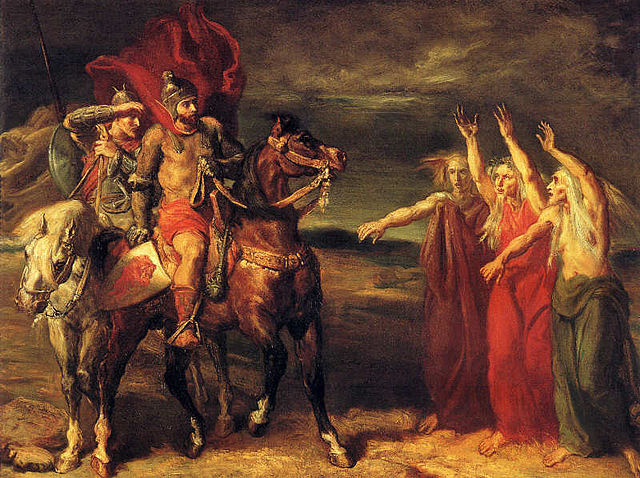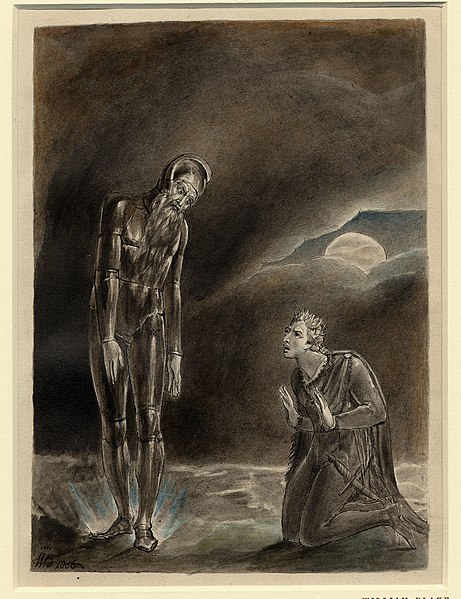Macbeth is a tragedy by William Shakespeare. It is thought to have been first performed in 1606. It dramatises the damaging physical and psychological effects of political ambition on those who seek power. Of all the plays that Shakespeare wrote during the reign of James I, Macbeth most clearly reflects his relationship with King James, patron of Shakespeare's acting company. It was first published in the Folio of 1623, possibly from a prompt book, and is Shakespeare's shortest tragedy.
Title page of the part in the First Folio.
Macbeth and Banquo encounter the witches for the first time.
Macbeth consulting the Vision of the Armed Head by Johann Heinrich Füssli
Lady Macbeth sleepwalking by Johann Heinrich Füssli
Shakespearean tragedy is the designation given to most tragedies written by playwright William Shakespeare. Many of his history plays share the qualifiers of a Shakespearean tragedy, but because they are based on real figures throughout the history of England, they were classified as "histories" in the First Folio. The Roman tragedies—Julius Caesar, Antony and Cleopatra and Coriolanus—are also based on historical figures, but because their sources were foreign and ancient, they are almost always classified as tragedies rather than histories. Shakespeare's romances were written late in his career and published originally as either tragedy or comedy. They share some elements of tragedy, insofar as they feature a high-status central character, but they end happily like Shakespearean comedies. Almost three centuries after Shakespeare's death, the scholar F. S. Boas also coined a fifth category, the "problem play," for plays that do not fit neatly into a single classification because of their subject matter, setting, or ending. Scholars continue to disagree on how to categorize some Shakespearean plays.

Sarah Siddons as the Tragic Muse, Joshua Reynolds (1784). Sarah Siddons (1755–1831) was an esteemed performer of Shakespearean tragedy.
Edwin Austin Abbey (1852–1911) King Lear, Cordelia's Farewell
The Tragical History of the Life and Death of Doctor Faustus by Christopher Marlowe, in the Huntington Library, San Marino, California
Hamlet and his Father's Ghost, William Blake (1806)








